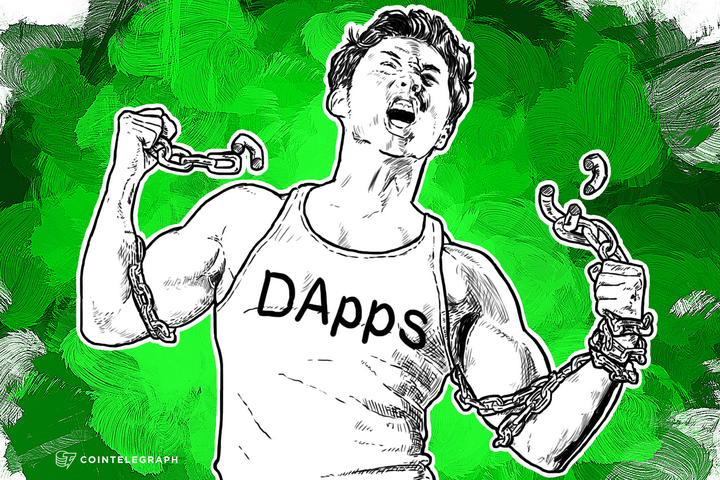Anyone who thinks that social media is free has never been on Facebook. Sure, you can post pictures of your cats and argue with strangers without opening your wallet, but you still pay by opening up your life.
Websites like Facebook, Twitter and others are a marketer’s paradise, not to mention a haven for government watchdogs and provocateurs. A new project, funded by David Johnston, cofounder of the BitAngels investment project, called DApps is set to possibly change this dynamic and allow a system that is both more transparent and more flexible.
What is DApps?
DApps stands for “decentralized applications” and is designed to break the chains imposed by the wave of Web 2.0 services that lock us into a never-ending consumer cycle.
Even if you do not tip or buy into Facebook games, every time you share a status update or image or link on one of these sites, you are feeding a monstrous database that companies around the globe draw on in their marketing.
There are entire industries designed to improve a business’s social networking presence. But recently Reddit came up with the idea of giving back to its community in the form of an actual payment based on participation. The company pledged to give US$5 million, possibly in Bitcoin, to its users. It is still not known exactly what form this payment will take, or whether users will be able to use it outside of Reddit, but the idea is certainly a unique one.
DApps take this a bit further. Johnston says that they are basically open-source applications that will generate “tokens” that reward users who make contributions and describe how those contributions can be used.
The interesting thing about DApps, however, is that changes in the protocol must be made by majority consensus. Koinify Founder and CEO Tom Ding loves DApps because they take the old idea of payment for services and bring it into the Information Age.
“Before DApps, the only way you could make money from software [was] either charge for it (keep [it] secret or limited use), or charge for extra services (Red Hat model), or sell user information (Google model, most likely still keep it secret or half secret).”
Websites that use DApps can make profits in much the same way that banks make money by selling banknotes to customers, a process known as seigniorage. But for profits to be maximized, the DApp must be properly engineered, allowing contributions to feed on themselves, growing larger as usage increases.

The great part is that no money is actually printed. The system is designed to work in much the same way that cryptocurrencies are created and maintained. In fact, Johnston said that Bitcoin was the original decentralized app:
“Think about the fact that Bitcoin, now a US$5 billion market cap project, [is] completely open source. There’s no CEO or marketing department. It’s been self-monetized by its own token. That’s pretty unique.”
While the funding for the project began in October of last year, there is still a ways to go before something like this can catch on. As a financing solution for angel investors, it seems ideally suited to be used immediately because startups can generate tokens that allow them to grow resources from other kinds of investors.
DApps do need an infrastructure in order to work, a way to produce and document the tokens, and finally a way to document transactions that take place in the network in a decentralized manner.
Did you enjoy this article? You may also be interested in reading these ones:
